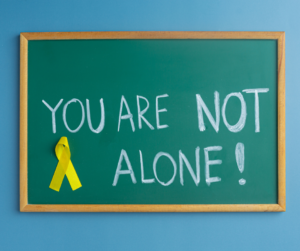Veteran suicide is a serious problem in the United States and its prevalence is heartbreaking. According to data from the U.S. Department of Veteran Affairs, an average of 17 veterans die by suicide each day, which corresponds to 6,132 suicides among veterans annually. This number is down from the original number of 22 a day but is still way too high.

Veteran suicide and depression are a major public health issue that deserves greater attention. Depression is often a contributing factor to suicidal thoughts in Veterans, so it is important to be aware of the signs and symptoms. Typical signs of depression in Veterans may include feelings of worthlessness, loss of interest in activities, difficulty concentrating, changes in sleep patterns and withdrawal.
If you are a Veteran and feeling very sad or thinking about hurting yourself, it is important to reach out for help. Talk to someone who can help.
There are a plethora of available resources for Veterans suffering from depression, including crisis hotlines, individual and group therapy, and support groups. One of the most important resources for those facing depression and suicide is professional help. Professional help can include mental health therapists or counselors, who provide face-to-face treatment, as well as telephone hotlines to reach out for help.
1. Reach out to a trusted family member or friend
2. Talk to a mental health professional such as a counselor, therapist, or psychologist
3. Join an online support group with other Veterans
4. Call a suicide prevention hotline like the National Suicide Prevention Lifeline (1-800-273-8255)
5. Connect with faith-based organizations like churches and religious groups for spiritual guidance and counseling services
6. Visit your local VA hospital for inpatient and outpatient treatment options
7. Seek assistance from military resources such as Military OneSource or Vet Centers
8. Take steps towards self-care by engaging in activities that help relieve stress, such as yoga, meditation, journaling, art therapy or exercise
9. Use available apps designed specifically to help manage mental health issues
10. Participate in creative outlets that foster feelings of empowerment and accomplishment
There have been several just in this group that have used this setting and the relationships created by this group to reach out for help.
Veteran suicide is a serious public health issue that deserves greater attention, with an average of 17 to 22 veterans dying by suicide each day. It’s important to be aware of the signs and symptoms of depression in Veterans, and if help is needed there are many resources available such as crisis hotlines, individual and group therapy, support groups, the VA or Vet Centers.